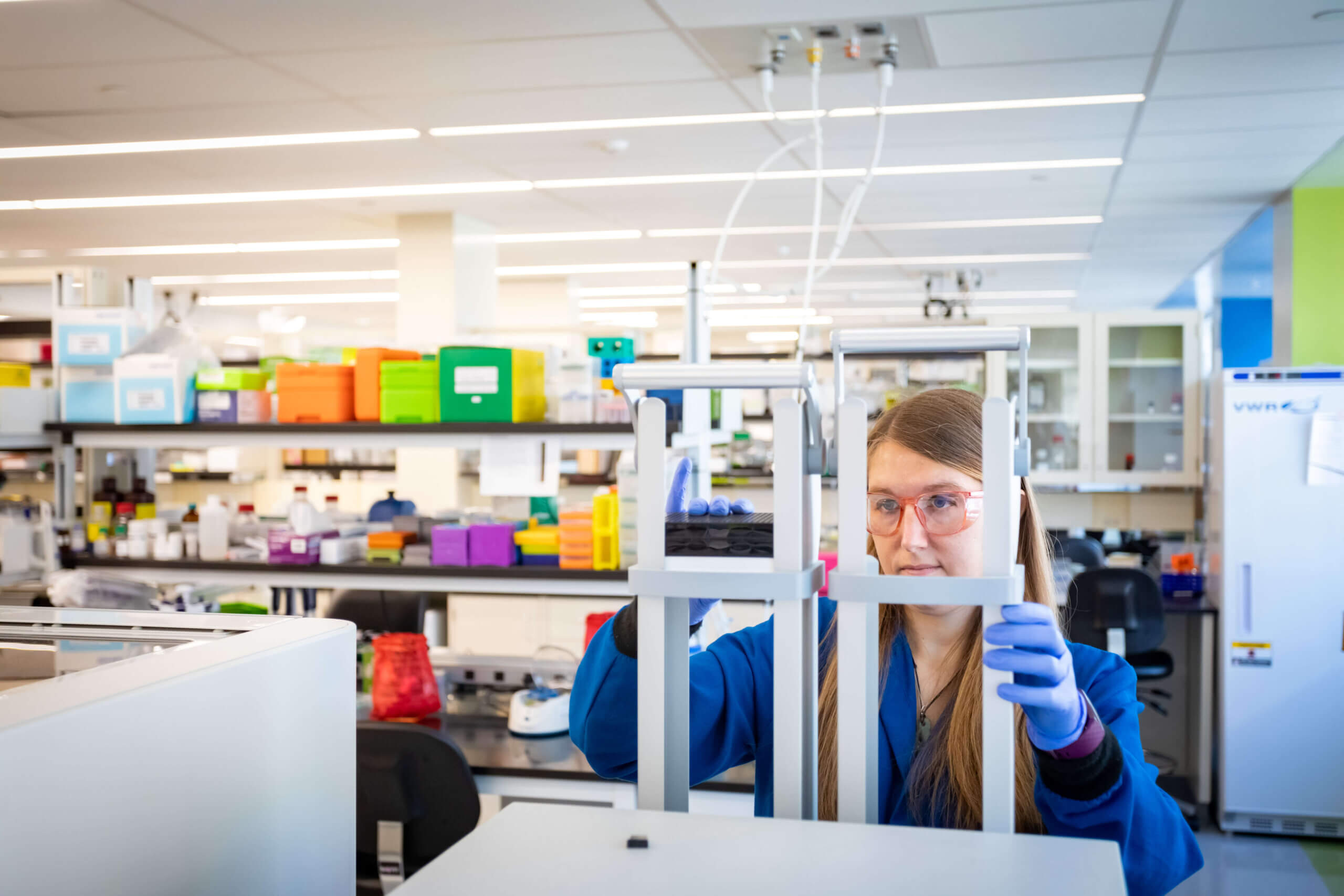
When Emily Cohen was in high school, she had the opportunity to spend three weeks on a senior project. She was hoping to land a role in a research lab or find someone who could help her design a scientific experiment, but she was unable to find a suitable mentor.
Emily didn’t wind up doing a senior project. Rather than deterring her from pursuing a scientific career, the experience set her on a path to ensure that the outcome would be different for future graduates of her all-girls school in Massachusetts – and other women and girls seeking an introduction to science.
“I have always been one to try to give back,” said Emily, who joined Kronos Bio in 2020 after earning her Ph.D. from Yale University in genetics and completing a post-doctoral fellowship at Harvard University studying breast cancer. “I went to a small college, where there weren’t research opportunities for someone like me. When I got to graduate school, it was important to me to work with younger students and to pass on my experiences.”
One of those younger students is Sadie Antine, who is in the first year of a Ph.D. program in virology at Harvard. She connected with Emily through a university-run mentorship program for women in science, where Emily has volunteered since the beginning of her post-doc.
“Emily was a huge help when the time came for me to decide which lab I would join for my dissertation research,” said Sadie. “She encouraged me to ask the right questions of my potential advisors, so that I am set up to join a lab that will best support me during my Ph.D.”
Watching the women and girls she has helped get the letter of acceptance to a program or land a job has been rewarding, Emily said.
Sadie, in turn, serves as a mentor for high school students interested in science and medicine through the Health Professions Recruitment & Exposure Program (HPREP) at Harvard Medical School.
Watching the women and girls she has helped get the letter of acceptance to a program or land a job has been rewarding, Emily said.
At Kronos Bio, Emily is the program lead for a team responsible for screening hits from the company’s Small Molecule Microarray (SMM) platform, whittling down thousands of potential finds with the goal of identifying drug development candidates for cancer therapies.
Emily’s connection to her work also has a deeply personal component – her mother died of breast cancer in 2003 and seven years later, her cousin also died of the disease. Emily’s aunt is a three-time survivor. Through genetic testing, doctors discovered that one of the BRCA1 mutations runs through the family and Emily, too, has the mutation.
“Learning about my own personal history has definitely given me extra drive,” said Emily.
Two decades after Emily was unable to line up her senior project, she remains committed to her high school.
“She has been a generous mentor for our students,” said Robert Mather, associate head of school at Dana Hall School. “Emily’s commitment to giving back to her alma mater by sharing her professional experiences and serving as a role model for our students is not only reflective of her character, but also squarely aligned with the mission of Dana Hall and the needs of young women today.”
Kronos Bio, Inc.
1300 So. El Camino Real
Suite 400
San Mateo, CA 94402
+1 (650) 781-5200
Kronos Bio, Inc.
301 Binney Street
2nd Floor East
Cambridge, MA 02142